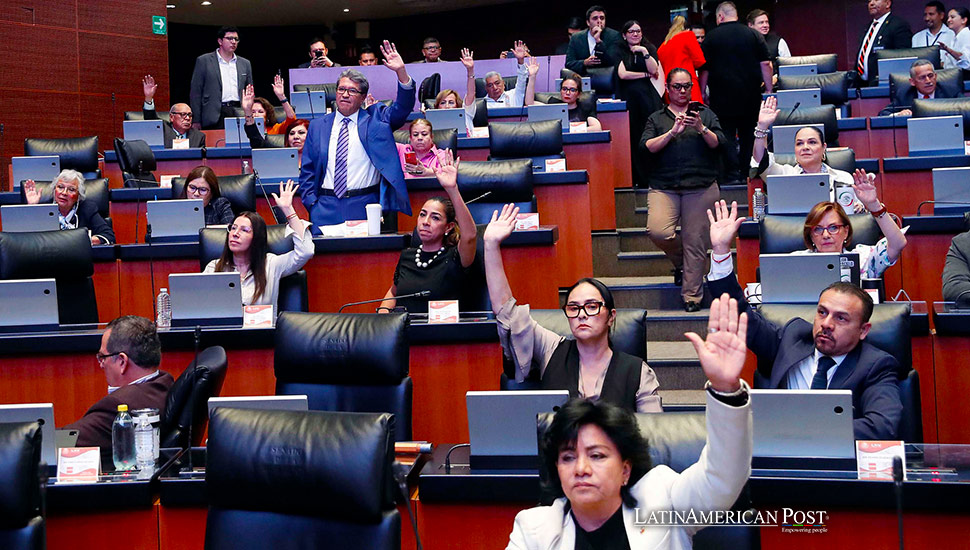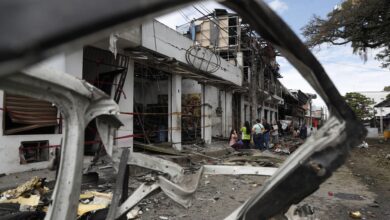Mexico’s Amnesty Law Reform: Balancing Justice and Information

The Mexican Senate approved a controversial amendment to the Amnesty Law, granting the President the power to offer amnesty in exchange for crucial information on past atrocities, sparking a national debate on justice and presidential authority.
This Wednesday, the Mexican Senate passed a significant amendment to the nation’s Amnesty Law, expanding the executive powers of the President to grant amnesty to incarcerated individuals—even those already sentenced—if they provide vital information that could help solve crimes of national significance. The amendment, which passed with 67 votes in favor and 32 against, has ignited a heated debate across Mexico about the balance between uncovering the truth and potentially allowing criminals to walk free.
Unprecedented Amendment to Amnesty Law Sparks Debate
Under the new law, the President of Mexico can directly access inmates who possess information that can clarify unresolved significant crimes, including massacres and collective murders that have marked the country’s recent history. This legislative change is mainly aimed at shedding light on infamous cases such as the disappearance of 43 students in Ayotzinapa, Guerrero, in 2014 and the Tlatlaya massacre in the State of Mexico the same year.
Ricardo Monreal, the Senate leader of the ruling Morena party, emphasized that the law is crucial for resolving these historical cases. According to Monreal, it is about reaching the truth behind events that occurred in regions like Chalchihuapan, Puebla; Allende, Coahuila; and San Fernando, Tamaulipas, among others, where past administrations have been implicated in severe human rights violations.
However, the amendment has been with its critics. Opponents argue it essentially empowers the President with undue authority, potentially undermining the checks and balances essential to a democratic system. Senator Damián Zepeda from the conservative National Action Party (PAN) criticized the initiative, claiming it transforms the President into an “absolute king,” where his will alone could override the law.
Questions of Forgiveness and Accountability
Moreover, the independent Senator Claudia Ruiz Massieu suggested that the measure resembles an indulto (pardon) more than an amnesty, implying a more personal forgiveness of crimes rather than a broader legislative act of forgetting them. Critics worry about the potential for abuse and the possibility that dangerous criminals might exploit the system to gain freedom without sufficiently contributing to the truth.
The reform also touches on a sensitive nerve within Mexican society, where impunity for serious crimes remains a pervasive issue. Monreal raised concerns about the potential implications of a Supreme Court decision that might invalidate Article 19 of the Mexican Constitution, which includes a catalog of serious crimes. He warned that invalidating this article could lead to the release of over 68,000 high-risk criminals.
This legislative move in Mexico reflects broader trends in Latin America, where several countries grapple with the legacy of past atrocities and the challenge of balancing justice with national reconciliation. Countries like Argentina and Colombia have implemented similar measures in their transitions towards peace and reconciliation, using legal mechanisms to uncover the truth behind state and guerrilla violence.
Continued Scrutiny and Future Prospects
As the amended law heads to the Chamber of Deputies for further analysis and potential approval, the Mexican public and the international community will closely watch the developments. The success of this law will largely depend on the mechanisms put in place to ensure that it does not become a tool for impunity but rather a means to foster greater transparency and justice.
Also read: Mexico to Harness Lithium for Electromobility
The debate over the Amnesty Law amendment encapsulates a critical juncture for Mexico’s legal and political landscape. It raises profound questions about how societies can reconcile the need for peace and the demand for justice, ensuring that the pursuit of truth does not compromise the principles upon which democratic governance and the rule of law are built. As Mexico continues to confront its shadowed past, the world watches how it will navigate these turbulent waters, aiming for a future where truth and justice are not mutually exclusive but interdependent pillars supporting the edifice of national reconciliation and peace.




